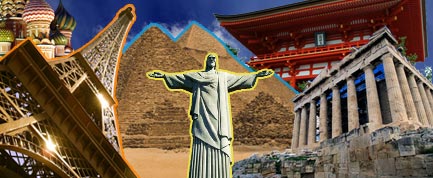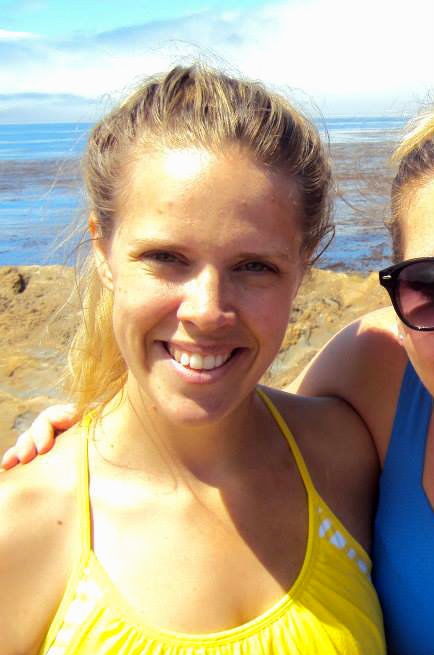Help Pick The New 7 Wonders of the World

A campaign to choose seven new wonders of the world is in its final stages, letting the public at large have their say by holding a worldwide vote. Finalists have been whittled down to 21 by an international panel of experts, and now the project organizers are calling on the public to choose the winners. (LiveScience is staging an unofficial vote here to offer a preview of the potential winners.) The seven monuments will be announced July 7 (that's right: 07/07/07) in a televised event around the world. The selection process and spectacle is quite different from the original seven wonders, which were quietly compiled by Greek historians. "With New 7 Wonders we can contribute to a project which involves people of all continents, cultures, and features their different visions in different periods as a catalyst for a more peaceful world," said panel president Federico Mayor.
Original seven a mish-mash The original seven wonders of the ancient world weren't chosen by international consensus. They came about after the historians of ancient Greece began traveling around the borders of their classical empire and noted what monuments caught their eye—sort of like a travel guide for their fellow Greeks. A rough list of these seven began appearing around 200 BC:
- The Lighthouse of Alexandria
- The Hanging Gardens of Babylon
- The Temple of Artemis at Epheseus
- The Colossus of Rhodes
- The Statue of Zeus at Olympia
- The Mausoleum of Halicarnassus
- The Great Pyramid at Giza
All of the structures were located in and around the Mediterranean and had some kind of religious significance for the people who lived during antiquity. Only the Great Pyramid—or the pyramid of Khufu—still stands today, despite being the oldest. Going international The New 7 Wonders project, kicked off in 2001 by Swiss adventurer Bernard Weber, rectifies a problem with the old list: Greek writers were limited by their borders, and couldn't have seen what else was going on around the world. Had they seen the Great Wall of China or Stonehenge (two of the finalists), those would have probably made the old list too, historians argue. Since the project began, millions of people have voted online and by phone for their favorite spot. Events are being headed by Weber and a team of experts that includes a former UNESCO official and several prominent architects. Half of the profits from the campaign will be set aside for restoration of cultural monuments like the ones people are voting on, one of the main reasons Weber initiated the New 7 Wonders challenge. "There has never been any true public consensus of opinion on the last 2,000 years of human achievement," Weber said in a press release. "That is why we are urging the world's population to participate in this free vote which pays tribute to our collective global cultural heritage."
- Gallery: The Original 7 Wonders
- LiveScience Vote: The Unofficial New 7 Wonders
- The 7 Wonders Project Web Site
Get the world’s most fascinating discoveries delivered straight to your inbox.
 Live Science Plus
Live Science Plus






